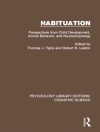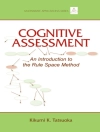This volume explores the integration of recent research on everyday, classroom, and professional scientific thinking. It brings together an international group of researchers to present core findings from each context; discuss connections between contexts, and explore structures; technologies, and environments to facilitate the development and practice of scientific thinking. The chapters focus on: * situations from young children visiting museums, * middle-school students collaborating in classrooms, * undergraduates learning about research methods, and * professional scientists engaged in cutting-edge research. A diverse set of approaches are represented, including sociocultural description of situated cognition, cognitive enthnography, educational design experiments, laboratory studies, and artificial intelligence. This unique mix of work from the three contexts deepens our understanding of each subfield while at the same time broadening our understanding of how each subfield articulates with broader issues of scientific thinking. To provide a common focus for exploring connections between everyday, instructional, and professional scientific thinking, the book uses a "practical implications" subtheme. In particular, each chapter has direct implications for the design of learning environments to facilitate scientific thinking.
Kevin Crowley & Takeshi Okada
Designing for Science [PDF ebook]
Implications From Everyday, Classroom, and Professional Settings
Designing for Science [PDF ebook]
Implications From Everyday, Classroom, and Professional Settings
Koop dit e-boek en ontvang er nog 1 GRATIS!
Taal Engels ● Formaat PDF ● Pagina’s 512 ● ISBN 9781135662226 ● Editor Kevin Crowley & Takeshi Okada ● Uitgeverij Taylor and Francis ● Gepubliceerd 2001 ● Downloadbare 3 keer ● Valuta EUR ● ID 4214760 ● Kopieerbeveiliging Adobe DRM
Vereist een DRM-compatibele e-boeklezer












